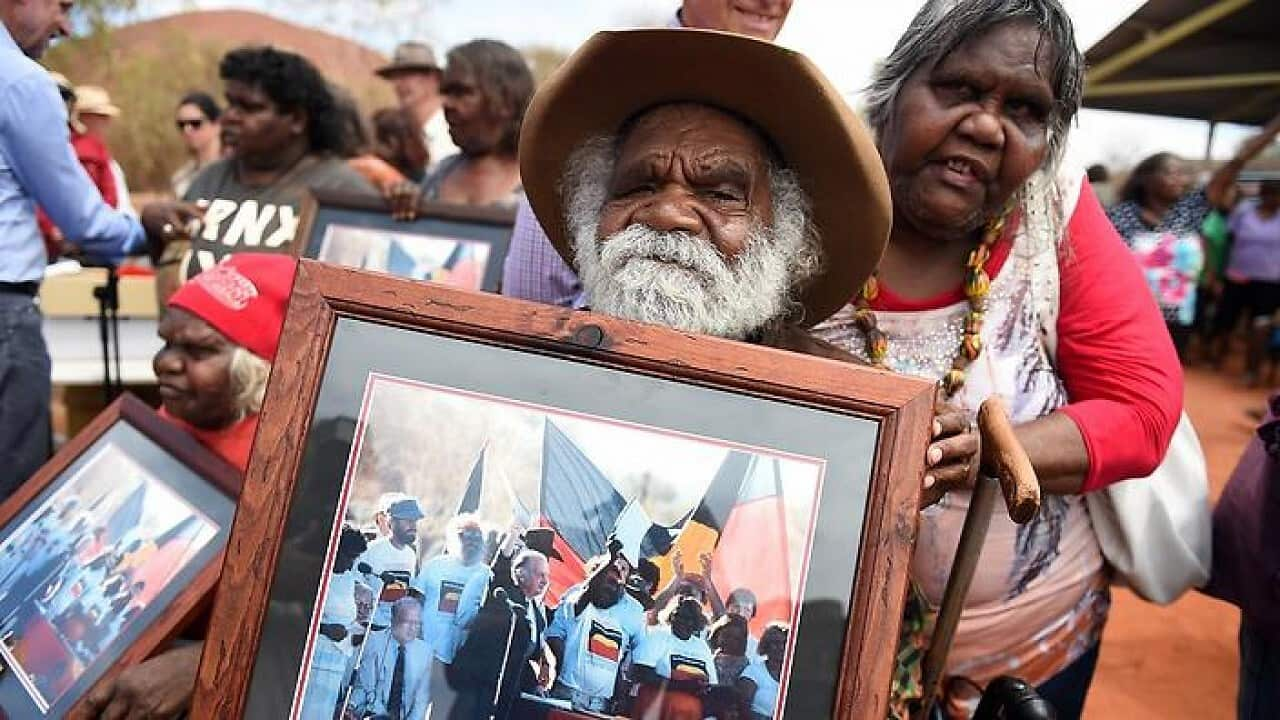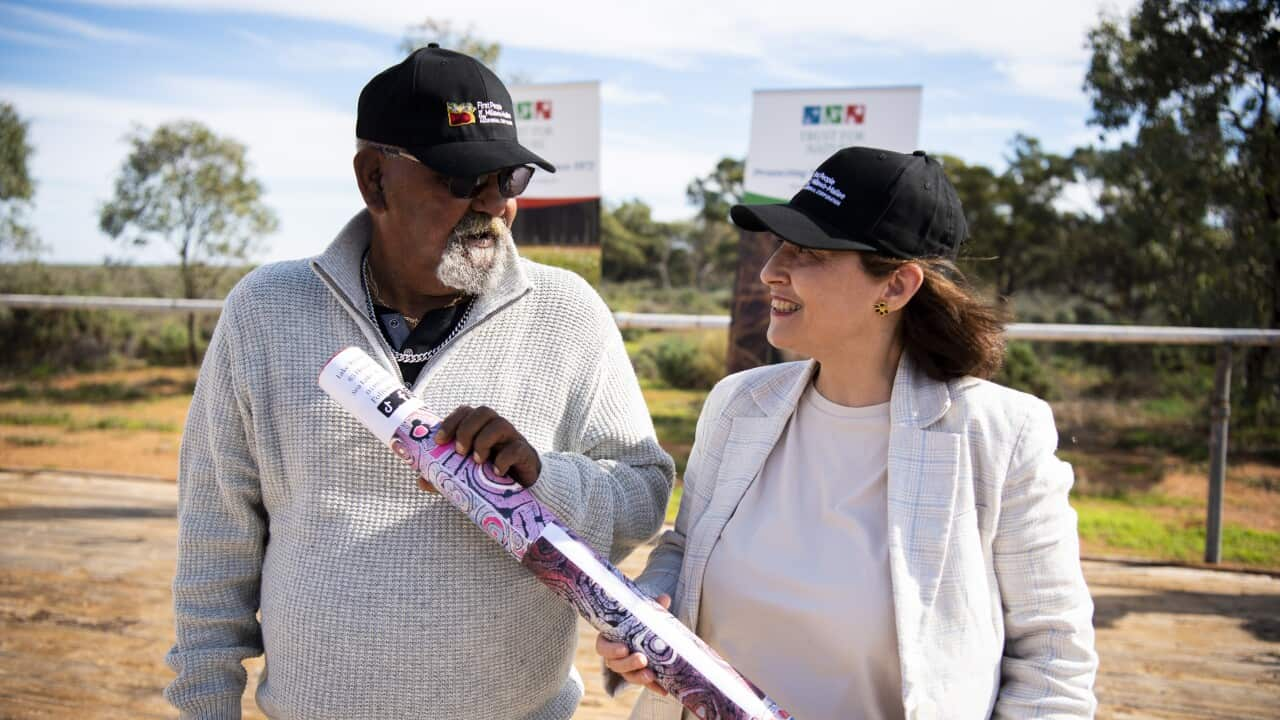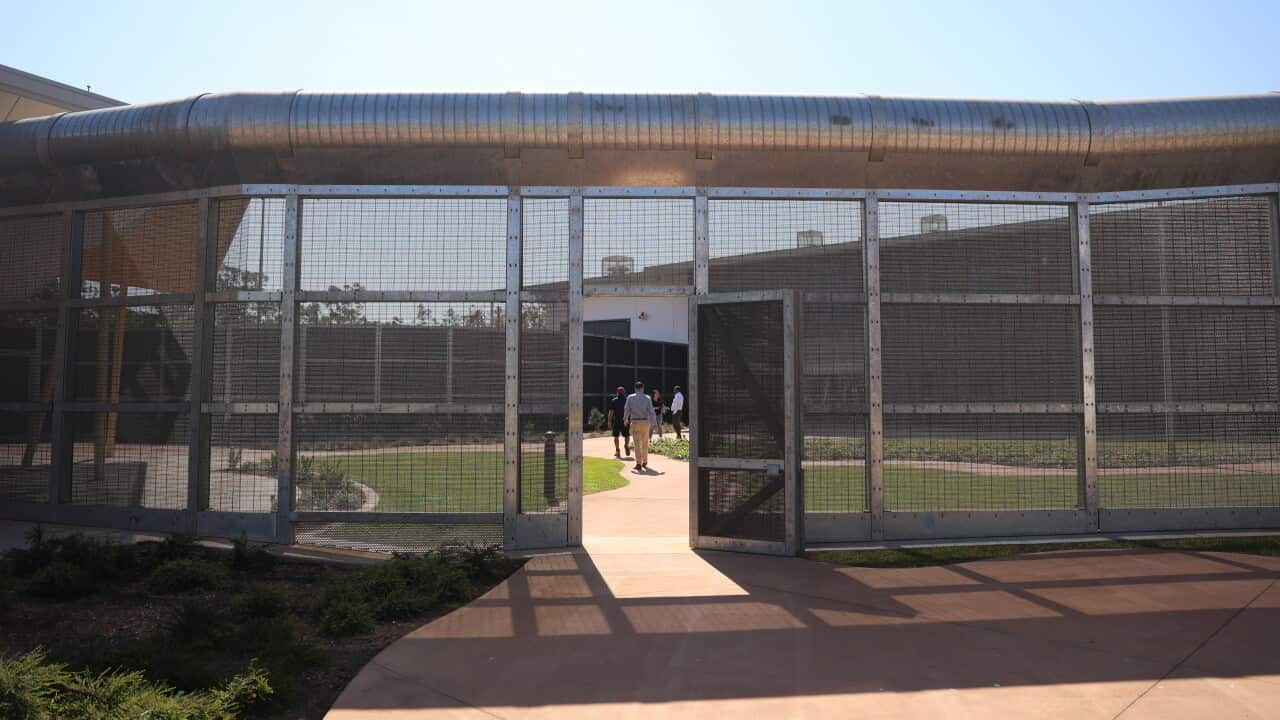The Kenbi Land Claim - which has been running since 1979 - has been finalised.
On Thursday, the Australian and Northern Territory governments handed back the final parcels of land on the Cox Peninsula to the Kenbi Land Trust and Larrakia Development Corporation.
The land handback includes the Cox Peninsula, nearby islands, and sea Country areas, reaching to the low tide mark, with measures in place to balance sacred site protections with public access.
The Larrakia People lodged the Kenbi Land Claim under the Aboriginal Land Rights (Northern Territory) Act 1976 (Cth) on March 22, 1979, when Larrakia and Wulna Traditional Owner Nigel Browne was one year old.
Mr Browne, now chief executive of the Larrakia Development Corporation, told NITV that the transfer of the land brings to a close at least one chapter in Larrakia people's history of fighting for land and sea Country.
"First and foremost, it signifies the end of almost half a century of advocacy, of struggle and determination, really started by Larrakia Elders back in the 1970s with the filing of the Kenbi land claim in 1979," he said.
"It's a good day."
The long road to victory
There were four separately represented claimant groups (totalling 1600 people) who claimed land available on the Cox Peninsula and the islands and reefs to the west in the 1970s.
After 21 years, three hearings before the full bench of the Federal Court, three before the High Court and two before the Land Commissioner, Justice Peter Gray published his recommendations in a for Aboriginal and Torres Strait Islander Affairs and to the Administration of the NT in December 2000.
Justice Gray recommended to the Minister, who under the Land Rights (NT) Act makes the decision regarding land claims, that most of the land claim be granted to an Aboriginal Land Trust - but it would take another 16 years for that to finally happen.
Then-Chief Minister Denis Burke opposed the proposal to return the 600 square kilometres of land to the Larrakia People and appealed the Land Commissioner's decision.
The Northern Territory Government's appeal was ultimately withdrawn in 2002 with the election of the Martin Labor Government.
In 2016, the newly incumbent Turnbull Liberal Government settled the Kenbi land claim with the Larrakia Development Corporation, which included the land handback, completed on Thursday.
"With all the the celebration and good news about this land claim finally being finalised, there's also a strong hint of sadness as well," Mr Browne said.
"From a personal perspective, when Prime Minister Malcolm Turnbull arrived for the settlement ceremony back in 2016 at Mandorah, my father, Rodney, was too sick to attend being a dialysis patient, and he passed away only a few months later.
"And only last week, one of my Aunties passed away, indeed, in the last couple of years a number of my uncles as well, so it's quite sad."
Economic opportunities abound
The finalisation of the Kenbi Land Claim provides new opportunities for Traditional Owners to pursue economic development, land management, and initiatives to preserve culture.
"When you contrast cultural matters and overlap them with economic development opportunities, it's always a fine line," Mr Browne said.
"Larrakia Country is no stranger to development, and obviously most development that has occurred on our Country has occurred without regard to Larrakia people or Country.
"But in 2024 I can definitely say that no other group in Australia has the opportunity now that the Larrakia have in helping to influence and guide the future expansion of a capital city."
Federal Indigenous Australians Minister Malarndirri McCarthy said the return of the land was a moment of immense significance.
"It not only restores Traditional Owners’ connection to Country but also sets the foundation for cultural, social and economic opportunities for future generations," she said.
“The finalisation of the Kenbi Land Claim is a reminder of the importance of recognising the deep ties Traditional Owners have to their land under Australian law."
There will be permit-free access to the intertidal zone (between the high and low tide waterlines), supporting recreational activities such as fishing and camping.
Designated camping areas are being developed in consultation with Traditional Owners to enhance visitor experiences while respecting cultural heritage.
Public access to specific roads and tracks – such as Cox Peninsula Road and Talc Head Road – remain unrestricted.
Restricted areas established in 2016 to protect sacred sites are unchanged, ensuring these culturally significant places are preserved.
Northern Land Council chair Matthew Ryan said the handback was a "really big moment" for Larrakia people and all Traditional Owners involved.
"The finalising of the Kenbi Land Claim is not just about returning land; it is about acknowledging history, culture, and the deep connection Traditional Owners have to their Country," he said.
"It is a credit to their determination over the last 50 years.
"This will allow Traditional Owners to keep their cultural ties to their land strong, while also exploring economic opportunities for future generations.
"This is an important reminder that Aboriginal lands must be respected, and that partnerships based on respect can lead to a better way forward."
NT Aboriginal Affairs Minister Steve Edgington said the historic moment was tribute to the ongoing collaboration between the NT and Australian governments, the Northern Land Council, the Larrakia people and Traditional Owners to resolve complex issues.
“Finalisation of the Kenbi Land Claim is a positive step for the Aboriginal landowners to progress commercial and land management initiatives for economic development and cultural outcomes," he said.
Use of roads and the track to the WWII Bomber site will continue without a permit.
Camping is permitted on the Cox Peninsula in designated camping areas only.
The 2018 Kenbi Open Areas Declaration remains unchanged with public access to specific beaches and intertidal waters of Cox Peninsula and Bynoe Harbour continuing without a permit.
Access to or use of land not within the designated areas will require a permit obtained through the NLC.



















